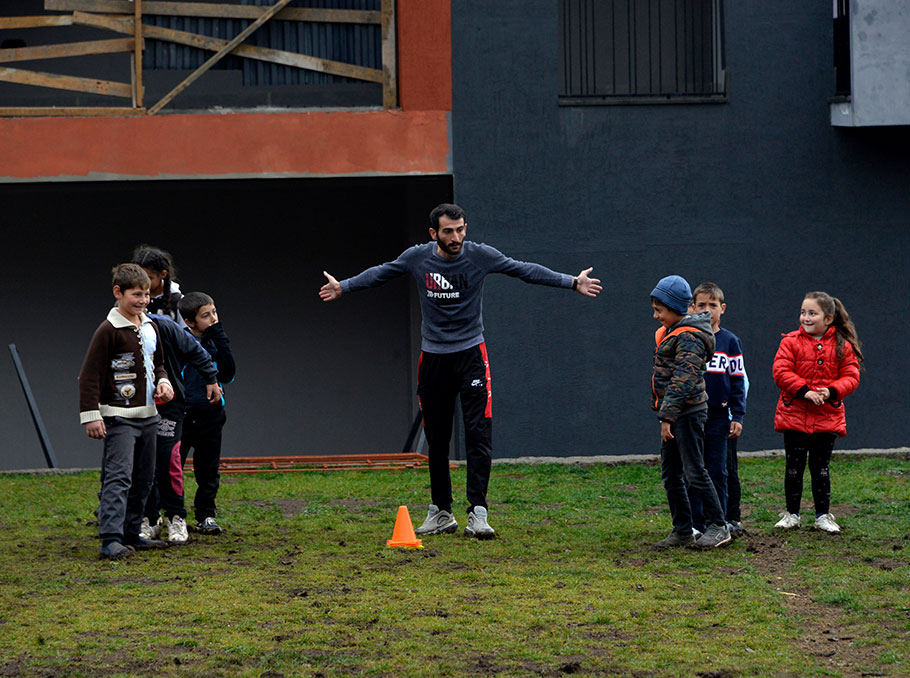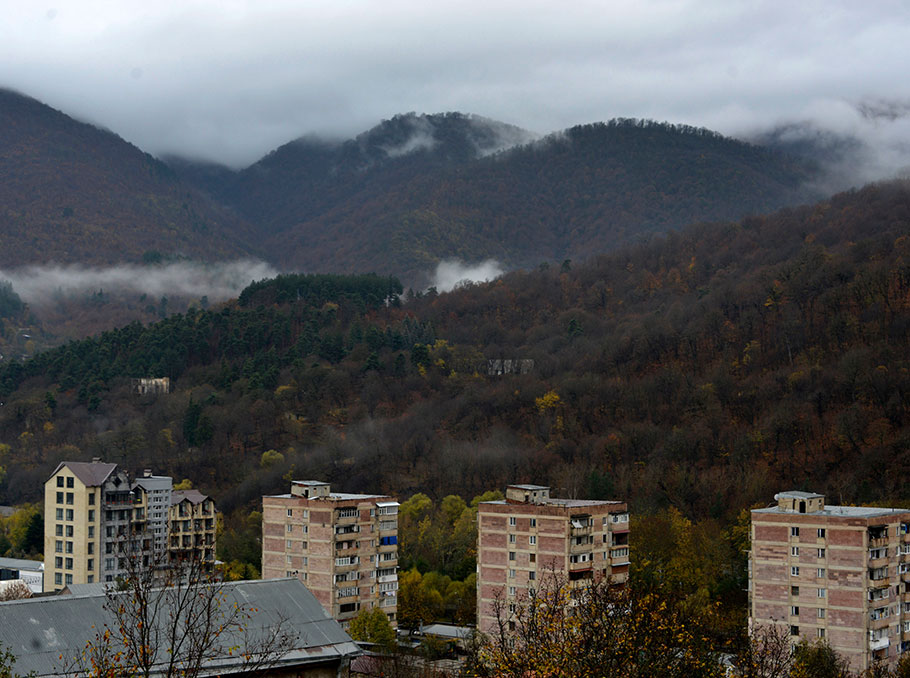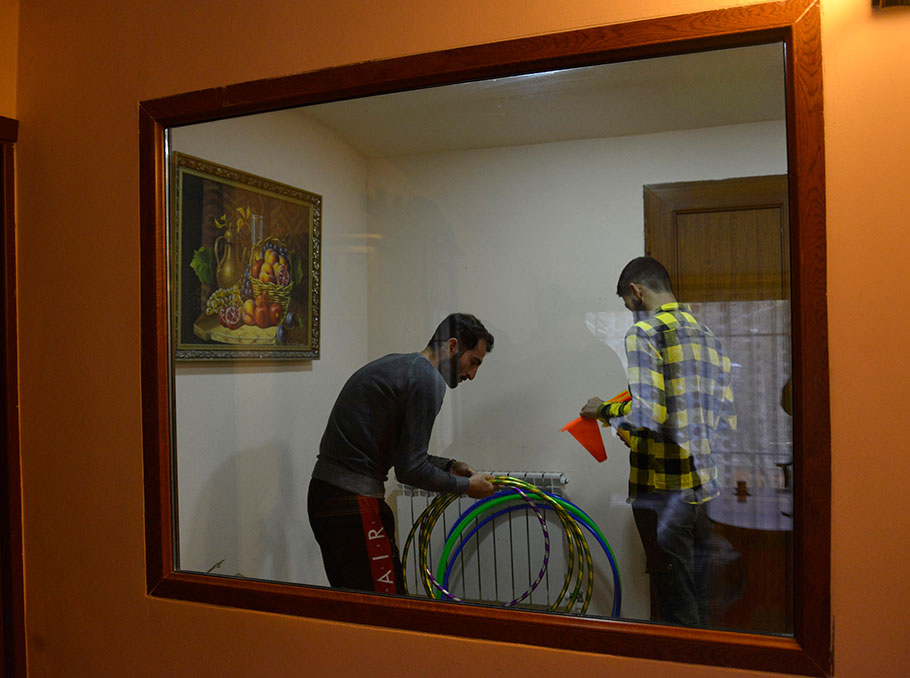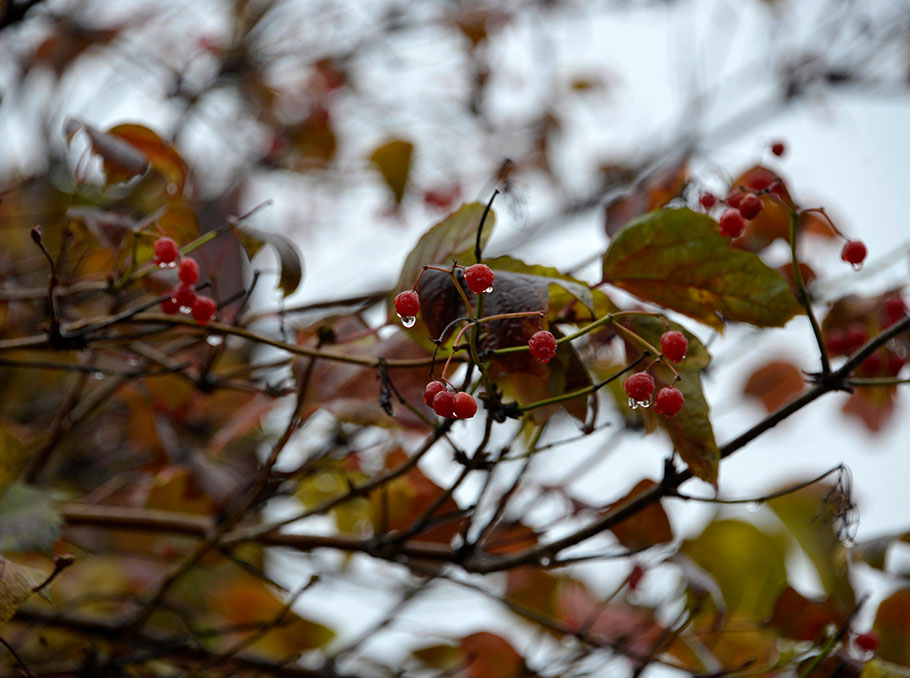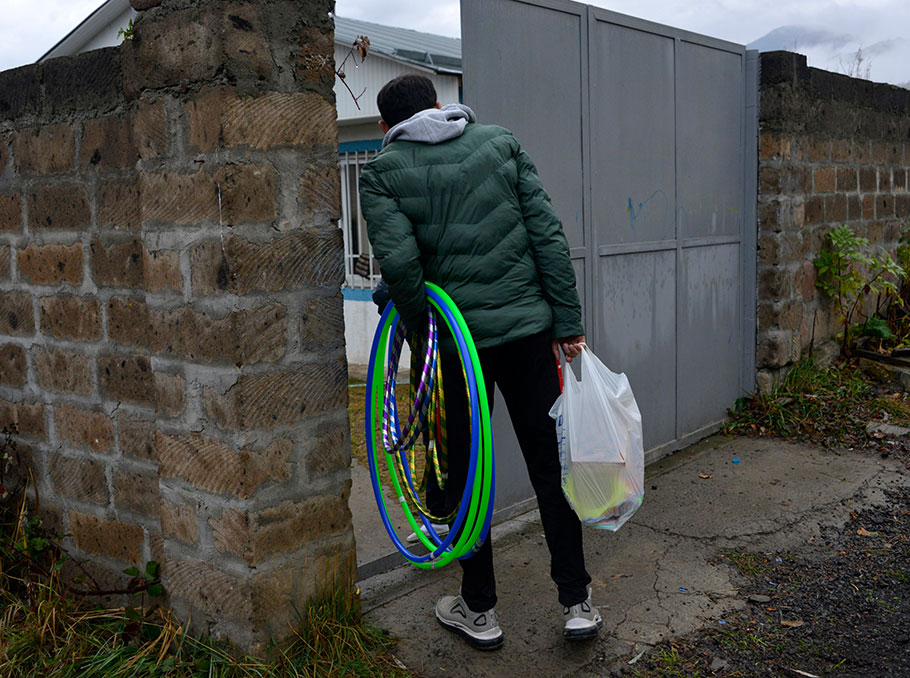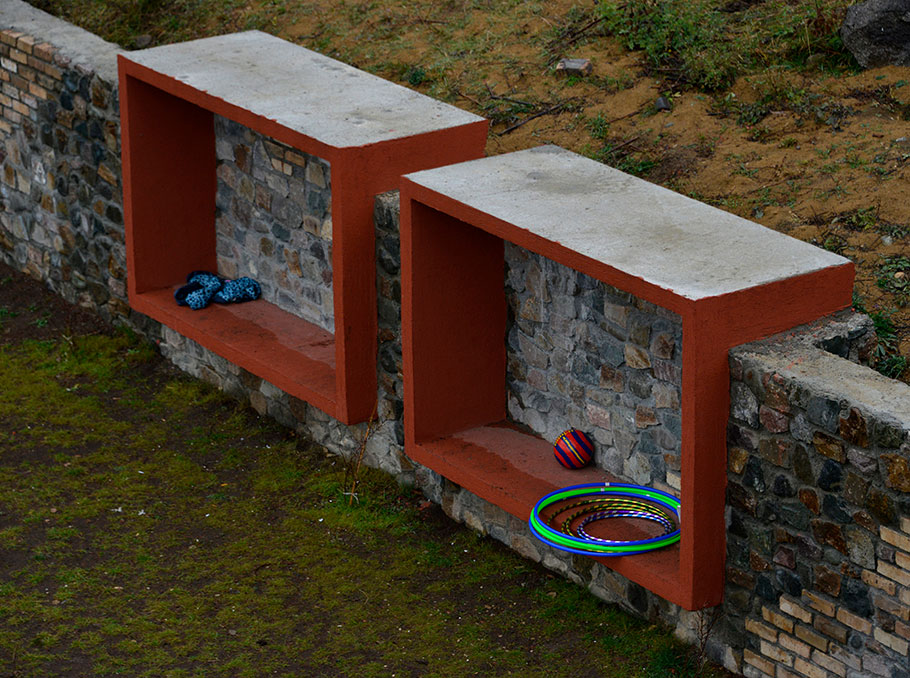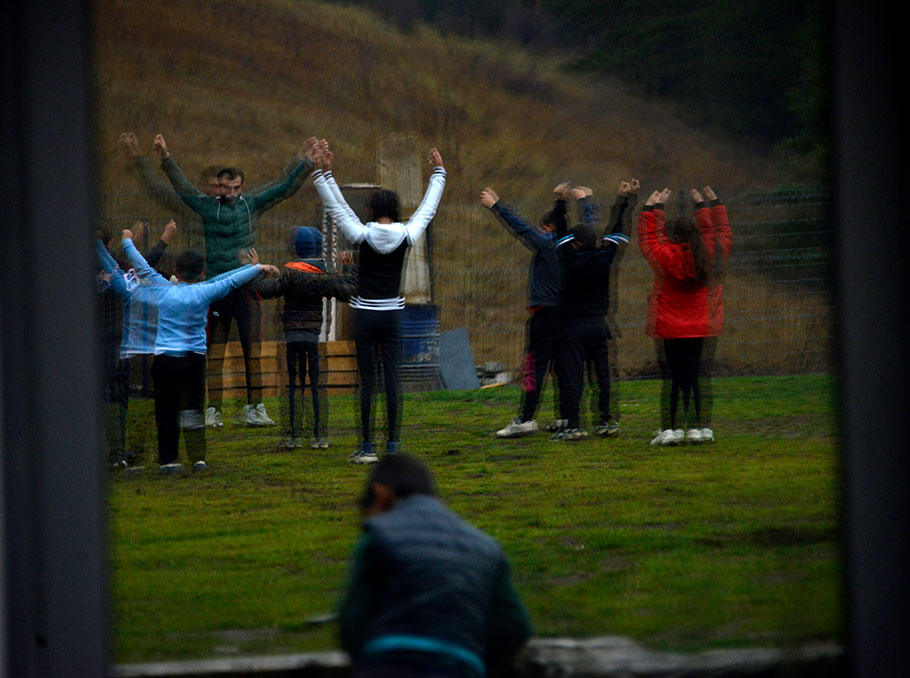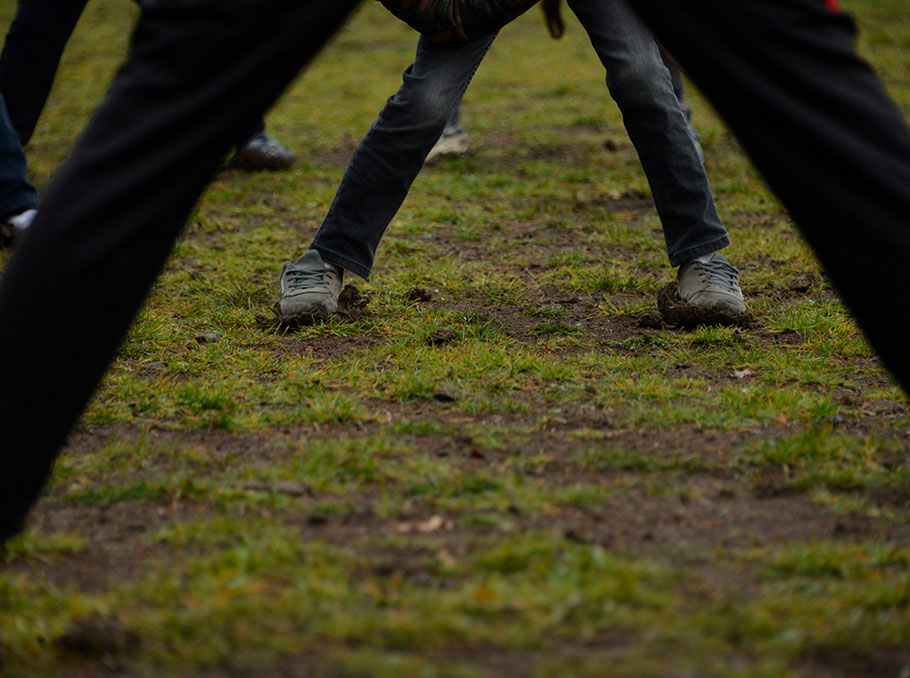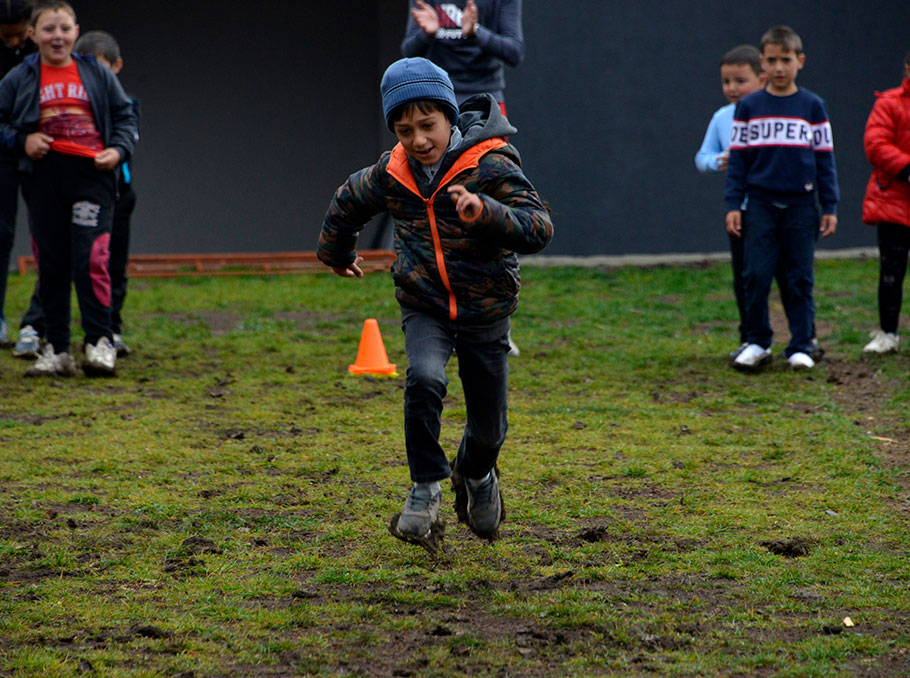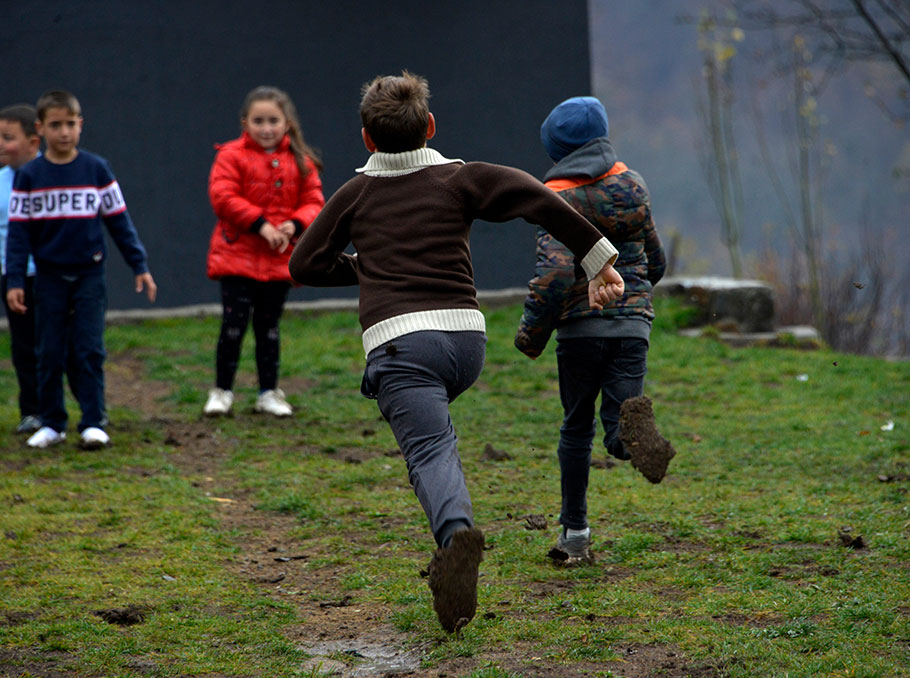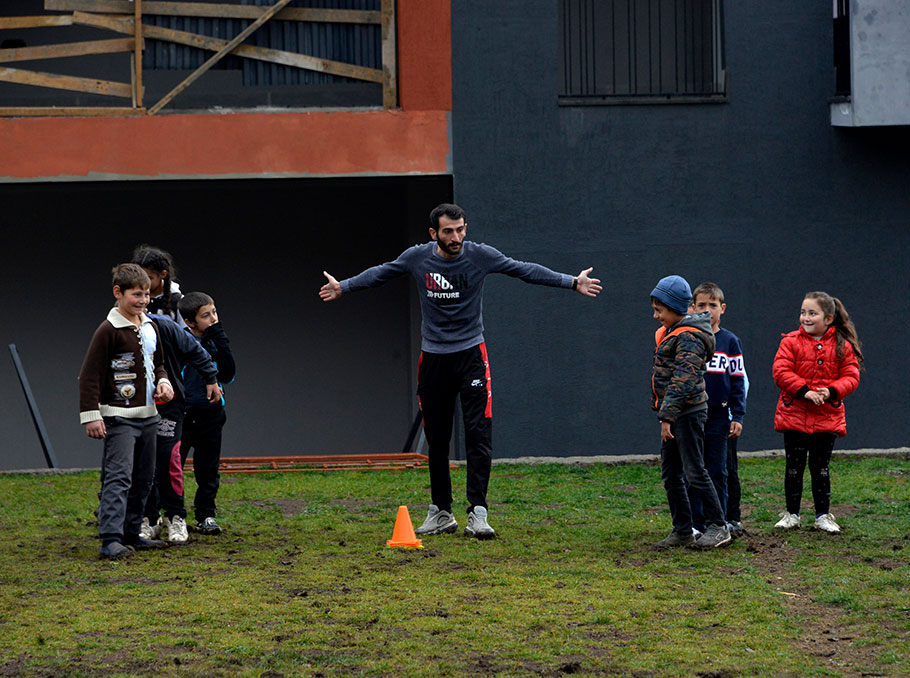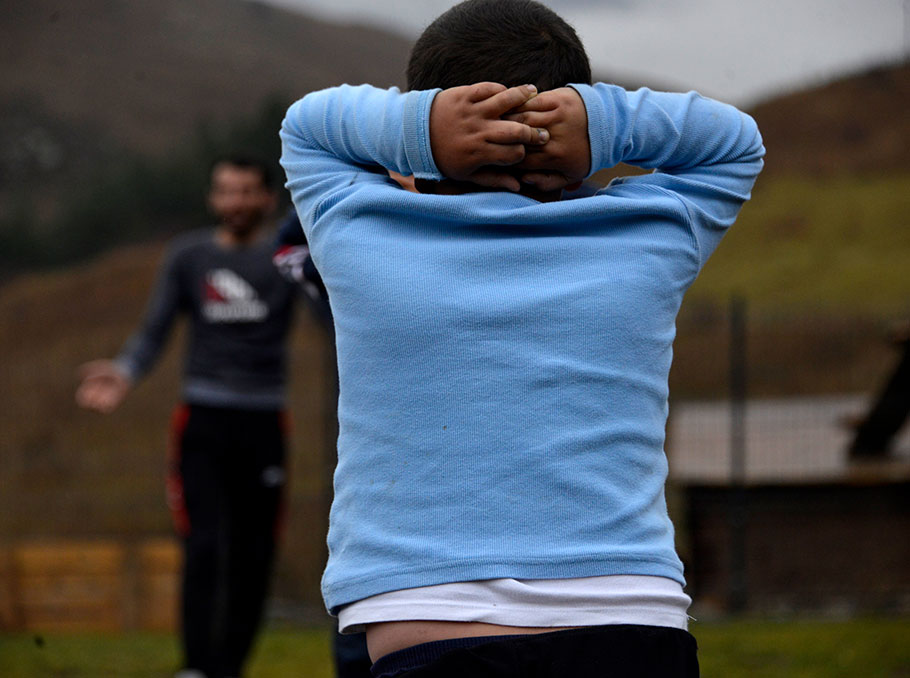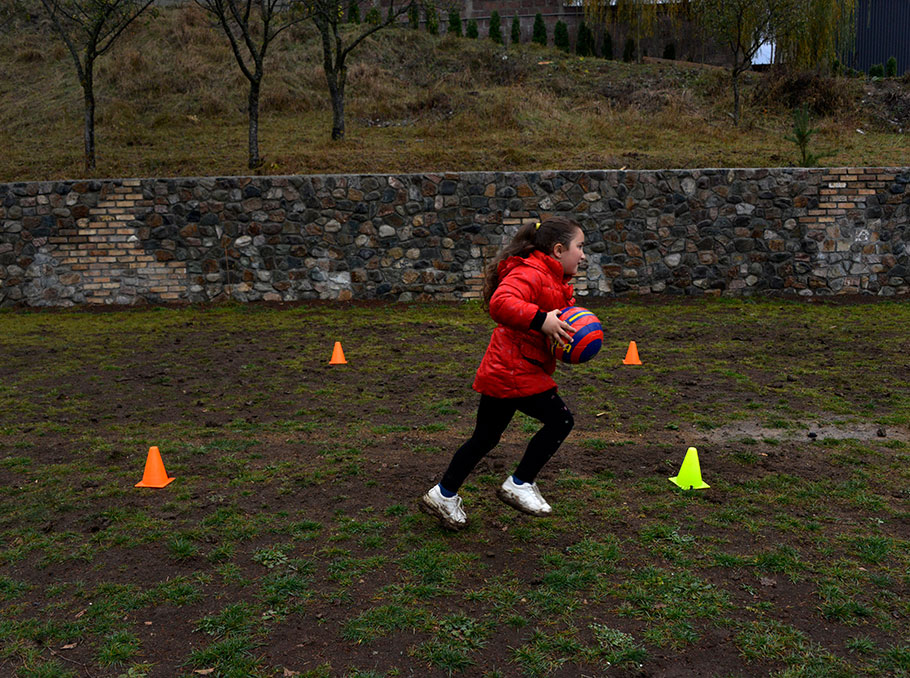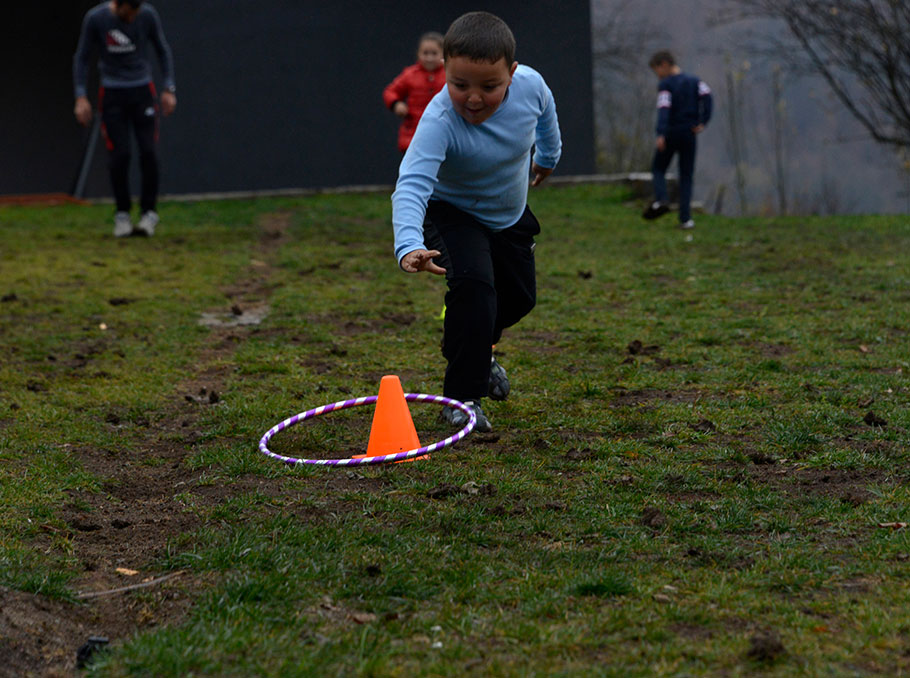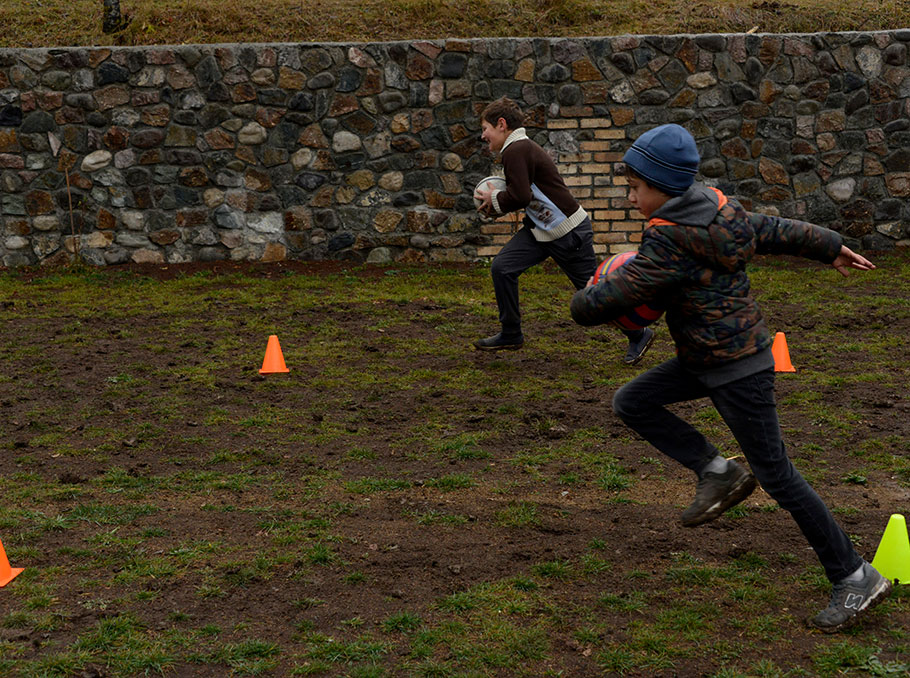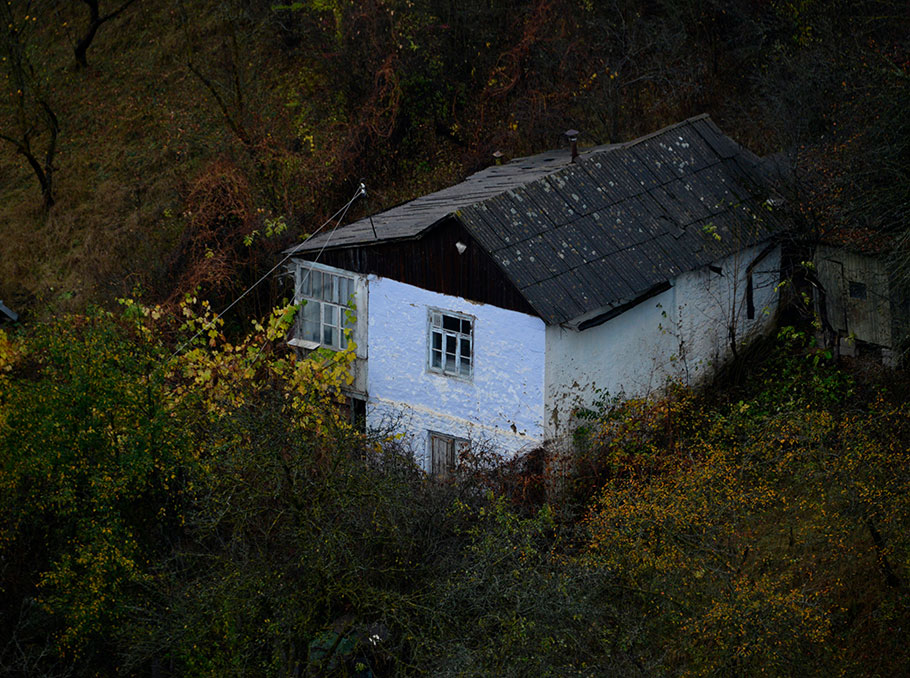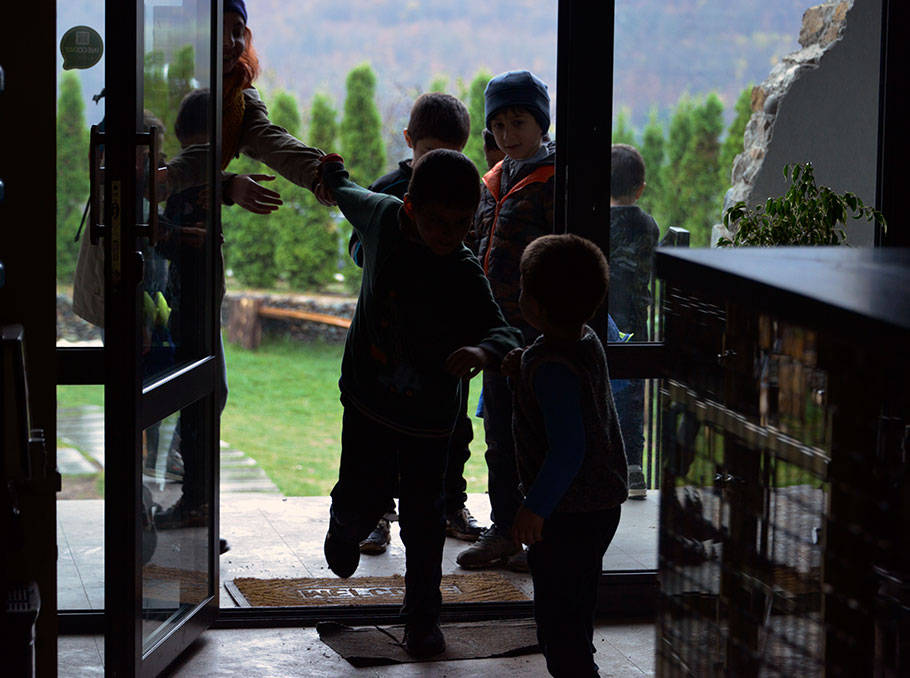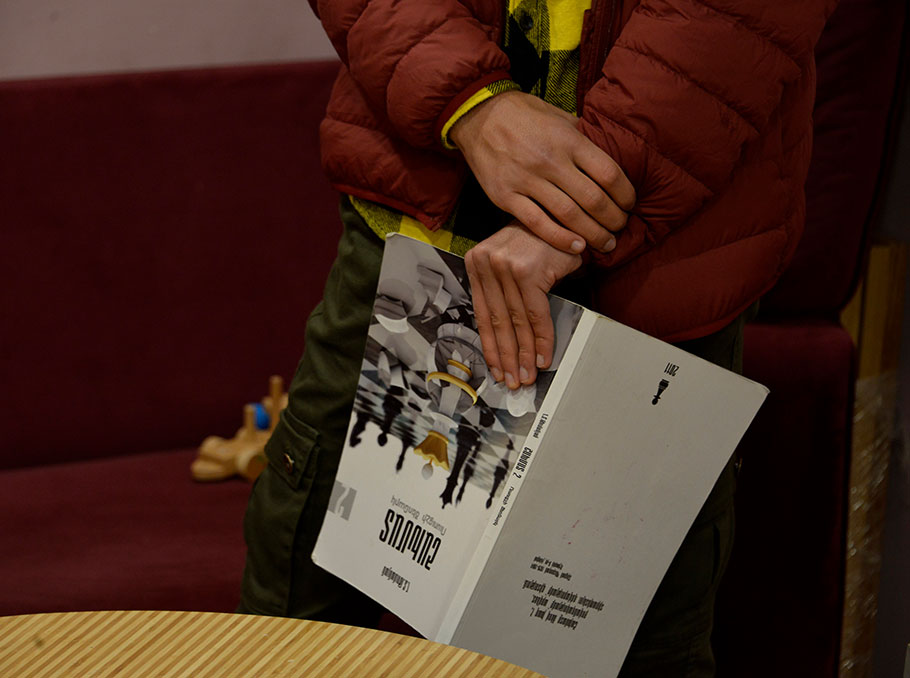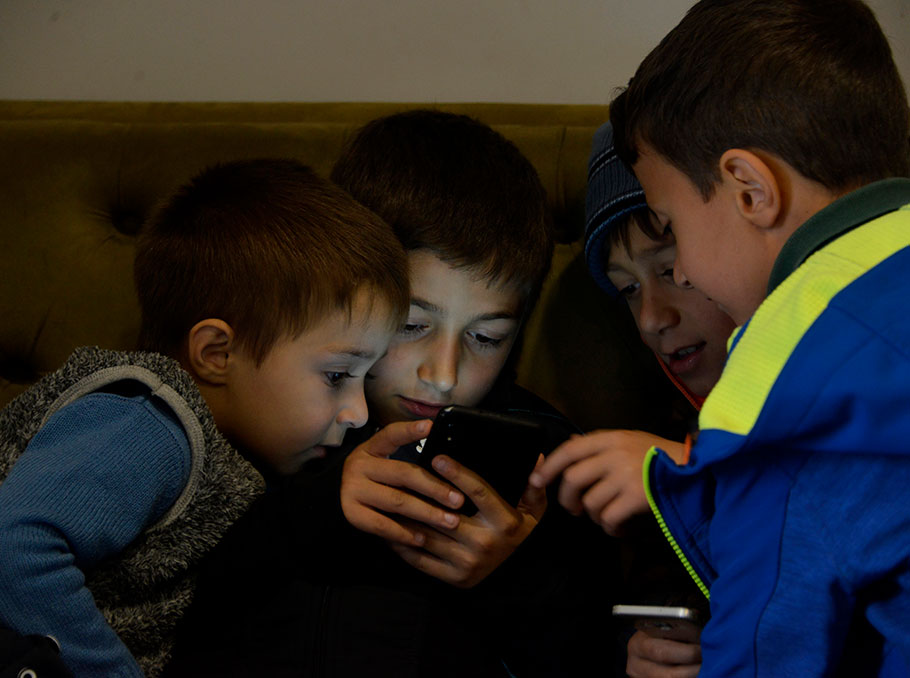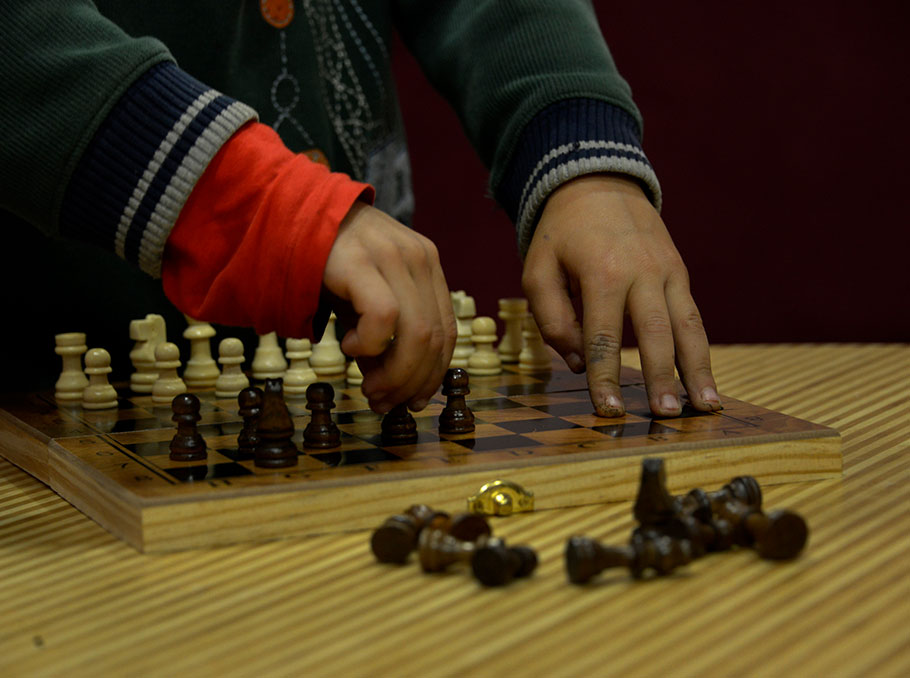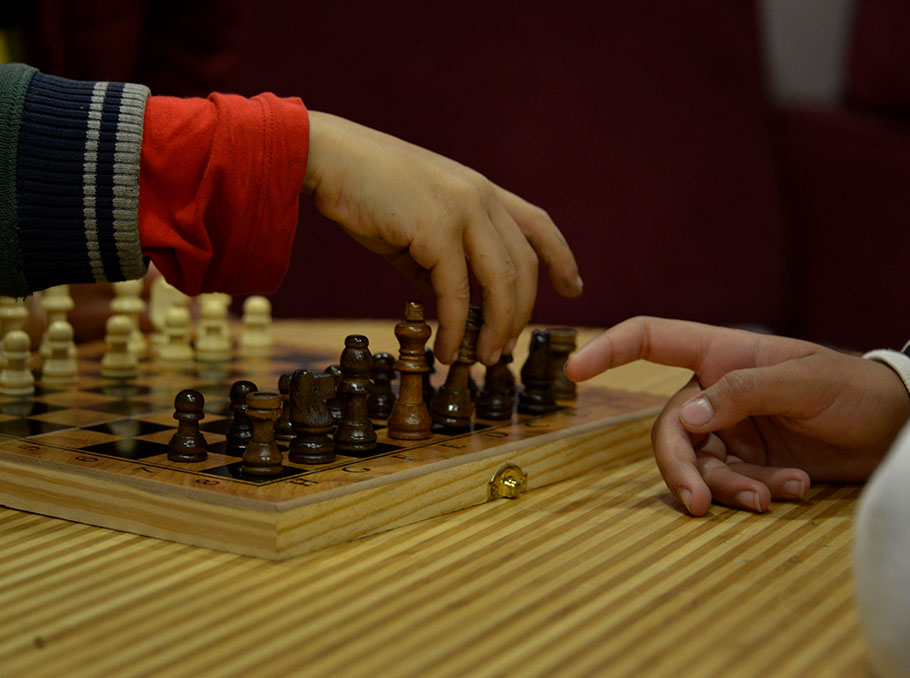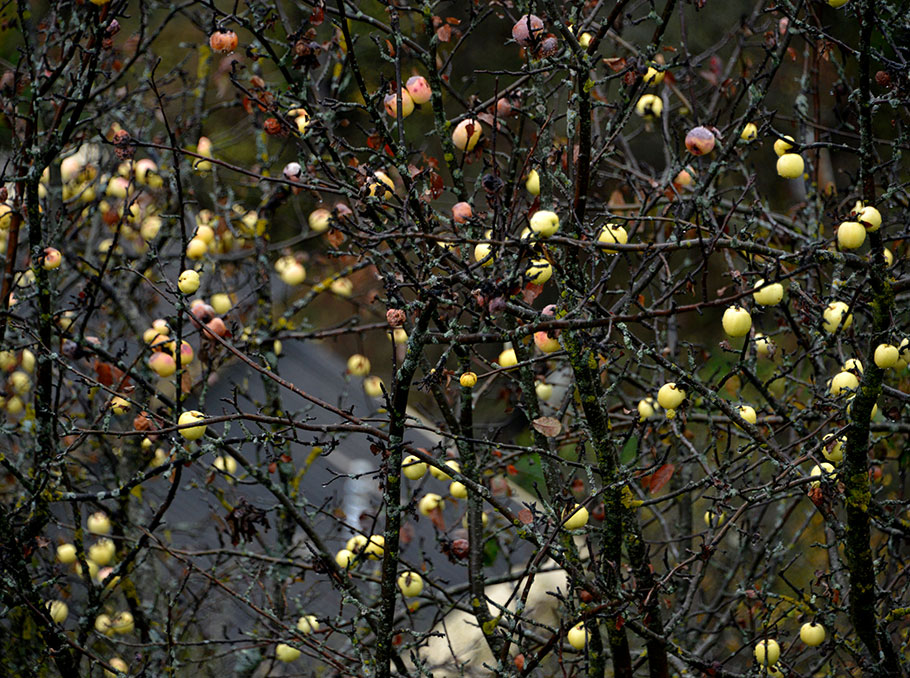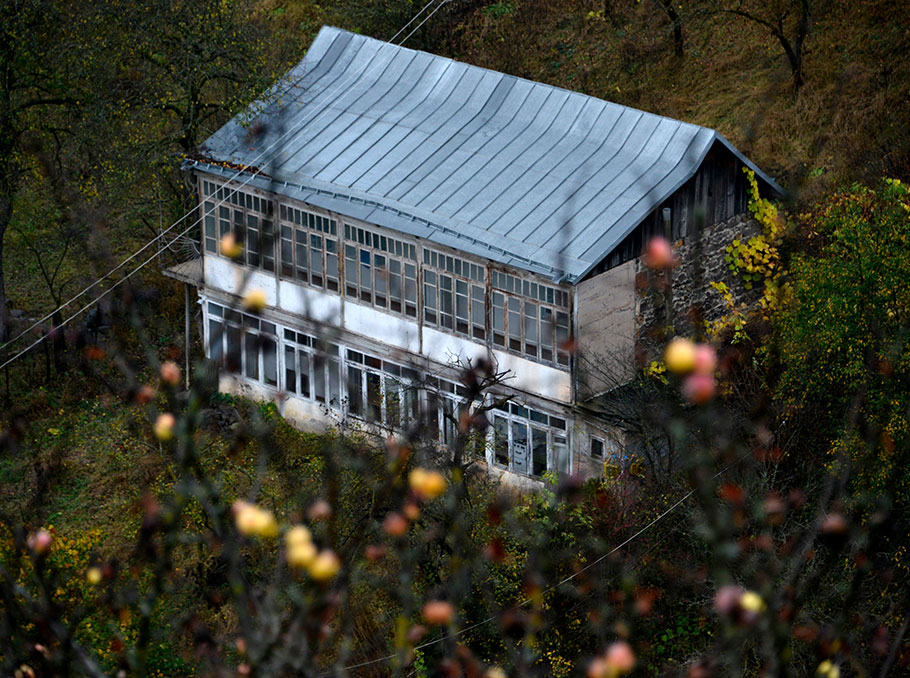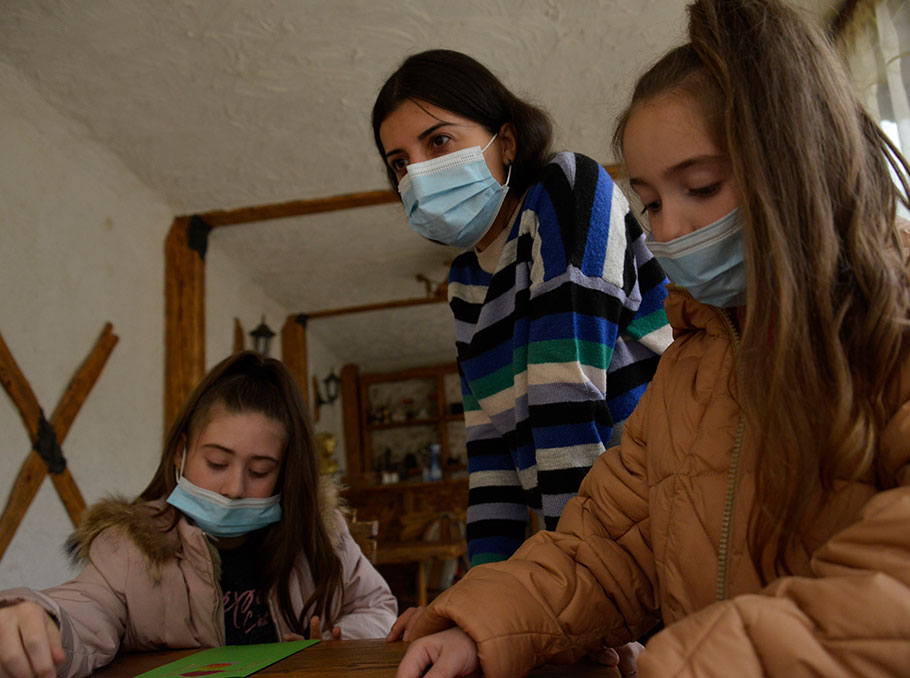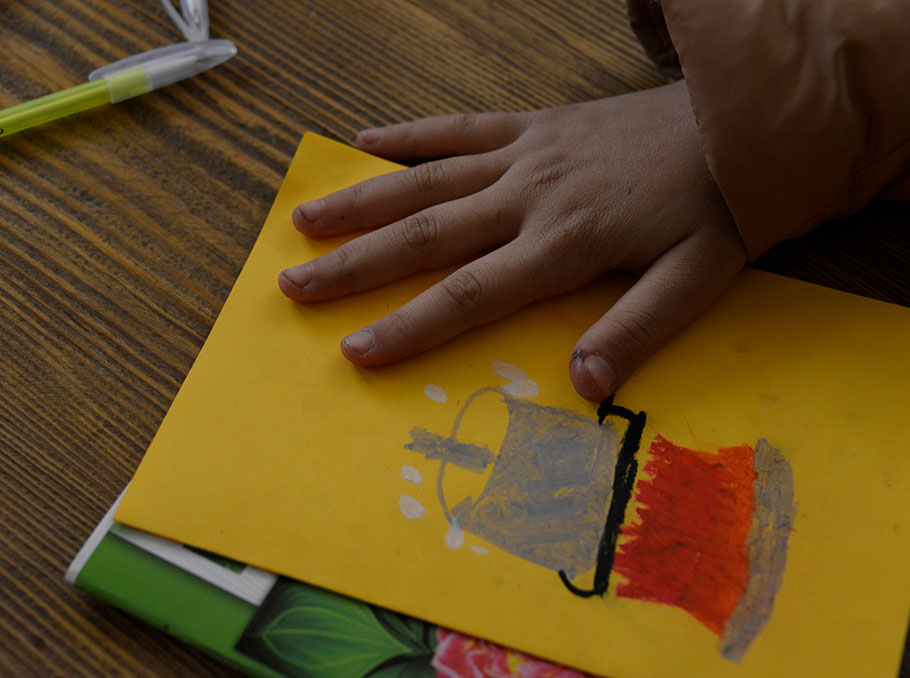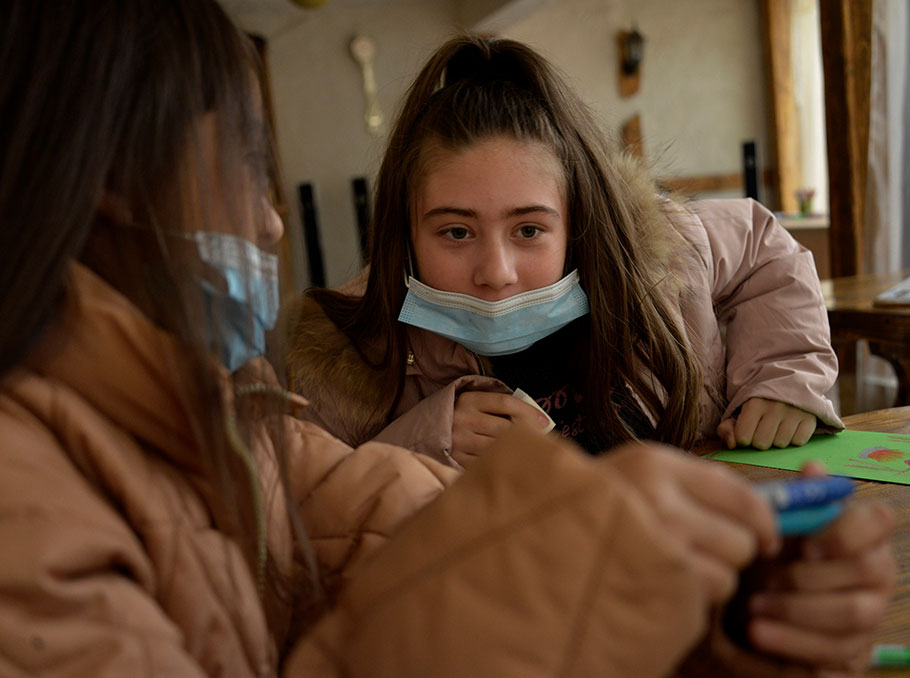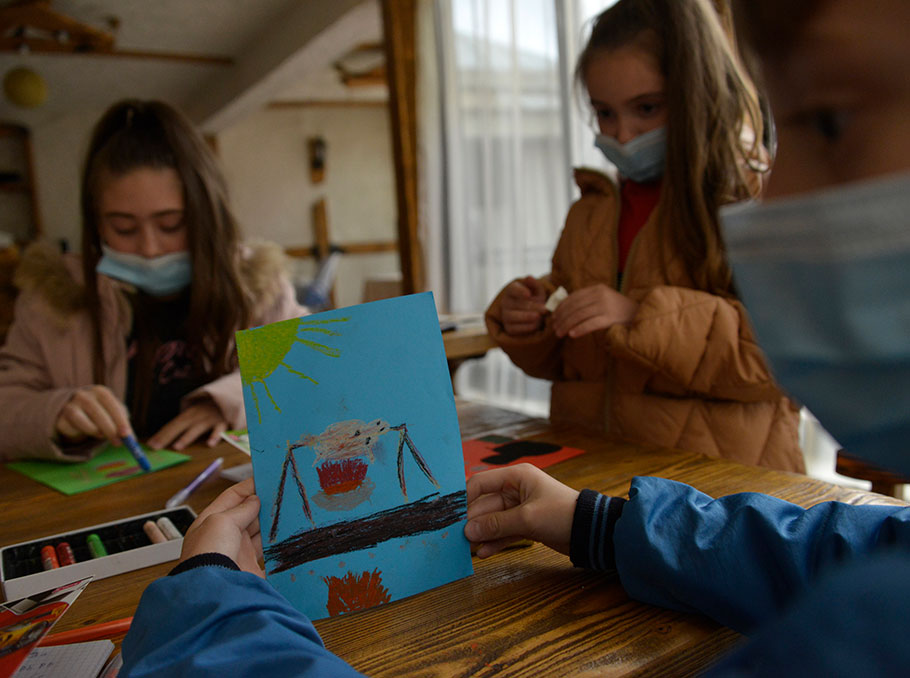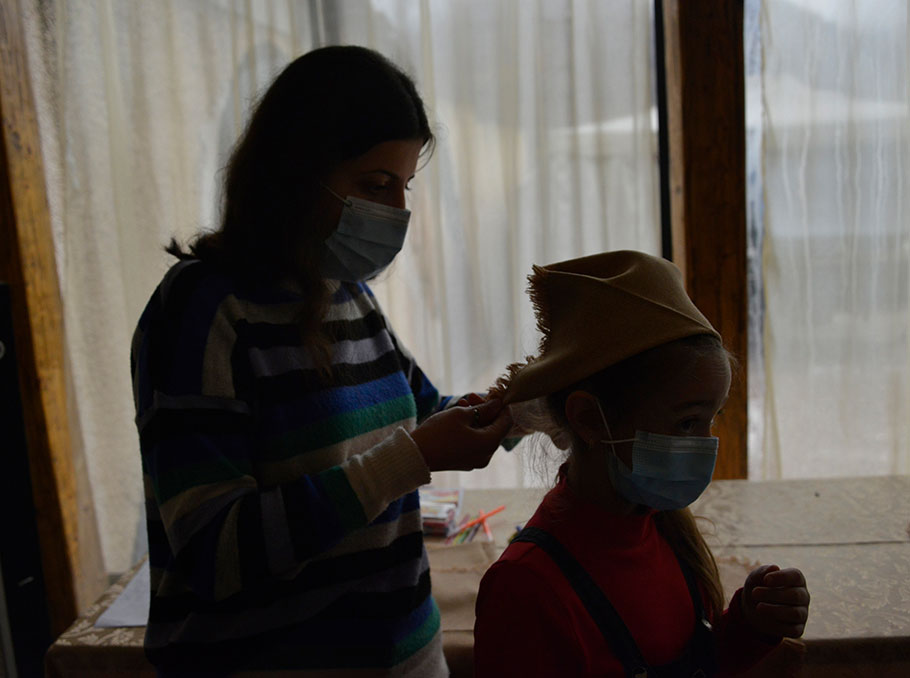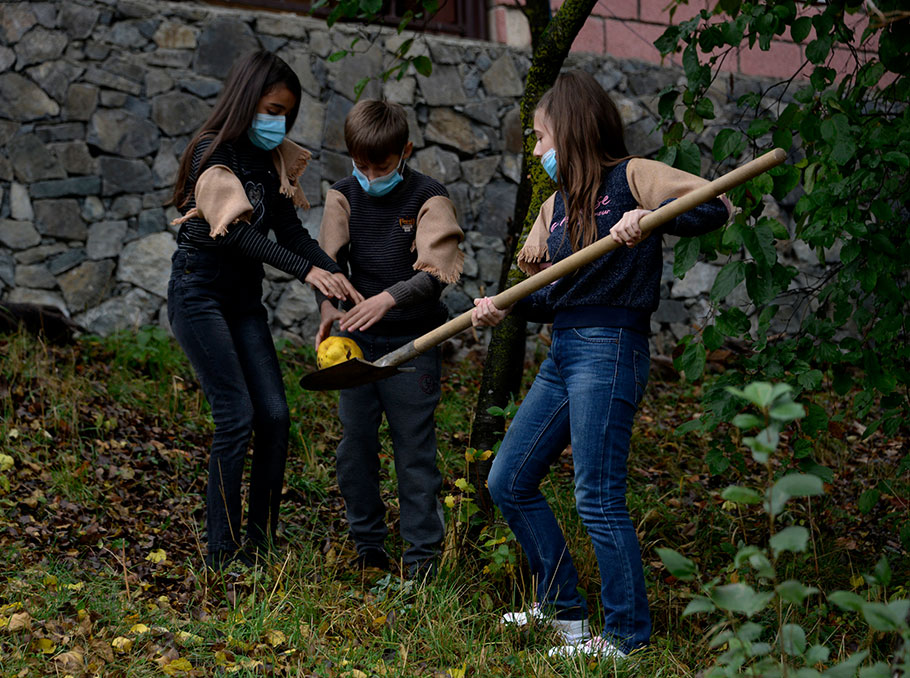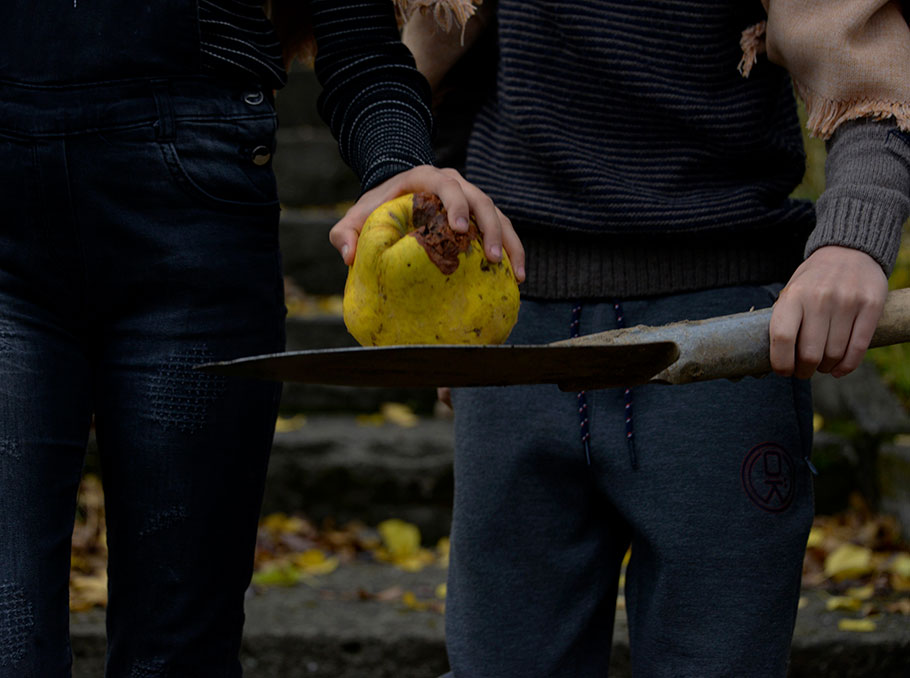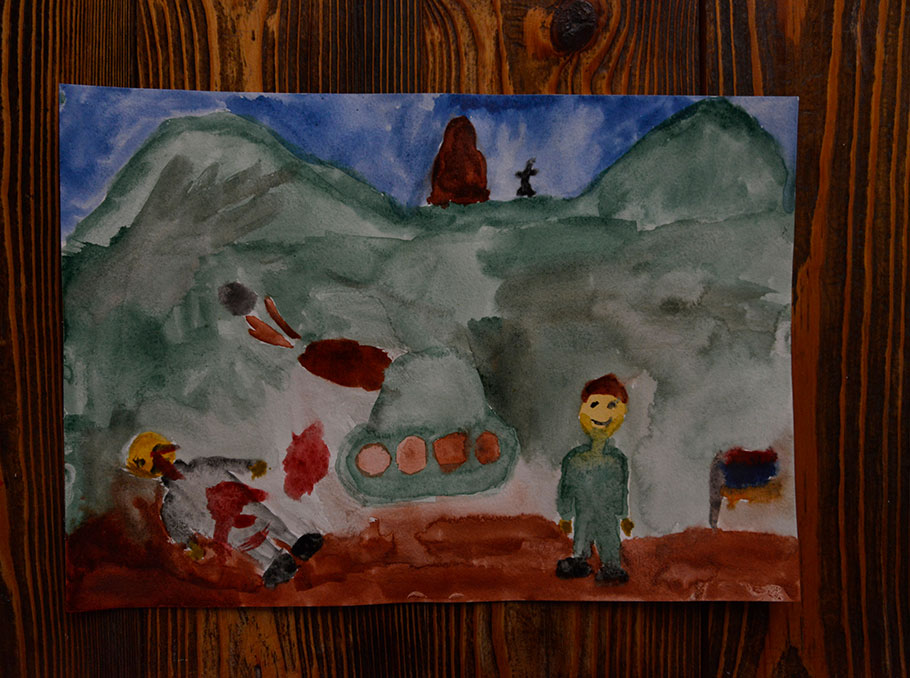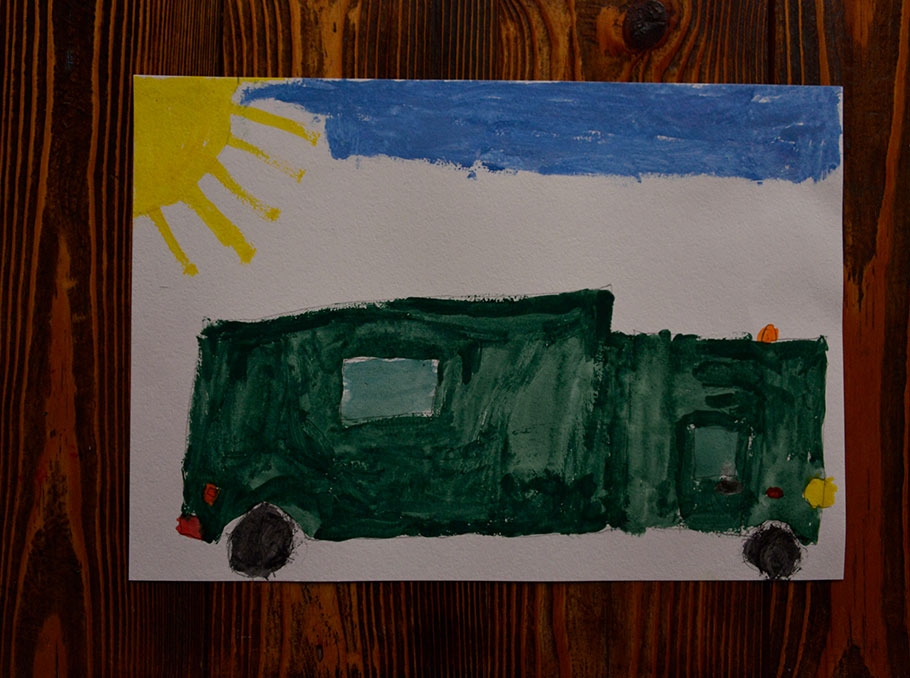The teachers were interviewed on November 6, before the war ended.
“We all took only a bag of clothes with us hoping to go back soon,” says Narine Vardanyan. After teaching in the village of Vaghazin of Kashatagh region for two years, Narine has been a Leadership Development Manager at Teach For Armenia in Artsakh since this September.
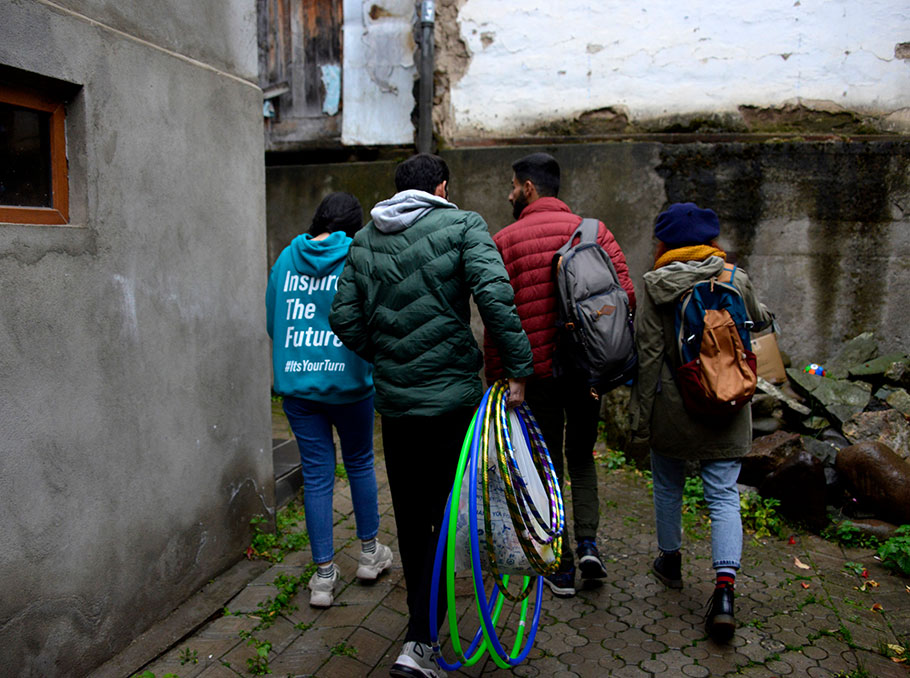
Photo: Vaghinak Ghazaryan/ Mediamax
Teach For Armenia has 28 Teacher-Leaders in 24 villages of Artsakh, where pedagogues are needed. After moving from place to place, from house to shelter for 10 days since the beginning of the war and volunteering, the teachers returned to Armenia. Only Alina, who taught Armenian language and literature in Vazgenashen community of Martuni, refused to leave the village as long as at least one of her students remained there.
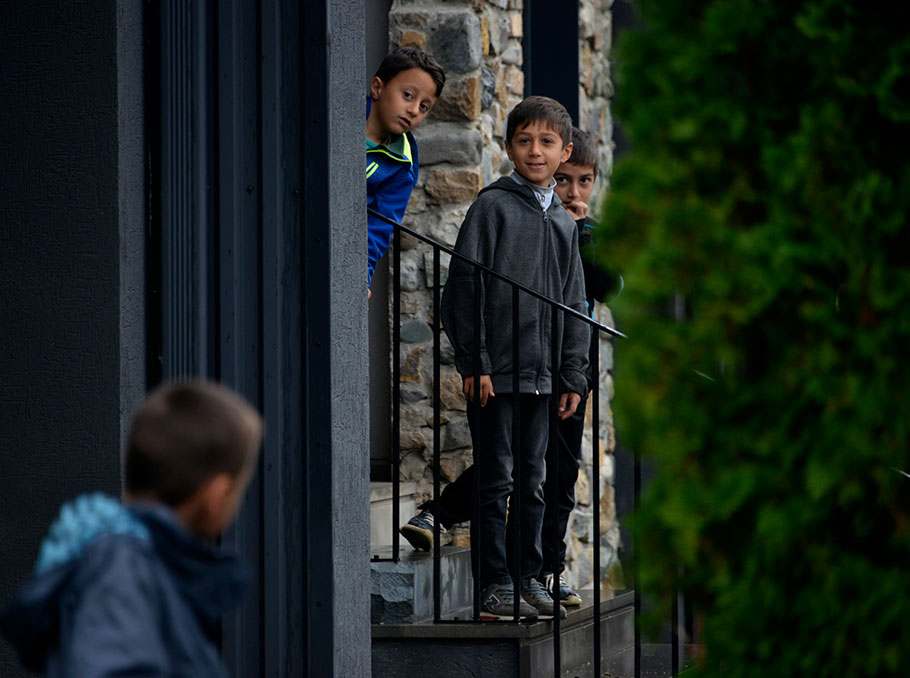
Photo: Vaghinak Ghazaryan/ Mediamax
Narine says that even if the war ends soon, the people of Artsakh won’t be able to go back immediately. It will take time to repair damaged houses and schools. And, the issue of education of Artsakh children remains open.
Ten TFA participants have moved to the town of Dilijan since October 26 to work with the students from Artsakh living here.
“The first week was declared a “week of trust”. We painted, danced, exercised, wrote cards and letters that allowed us to get to know each other, and the children were given an opportunity to talk about their inner world and needs. We were trying to understand how they felt in order to decide where to start.
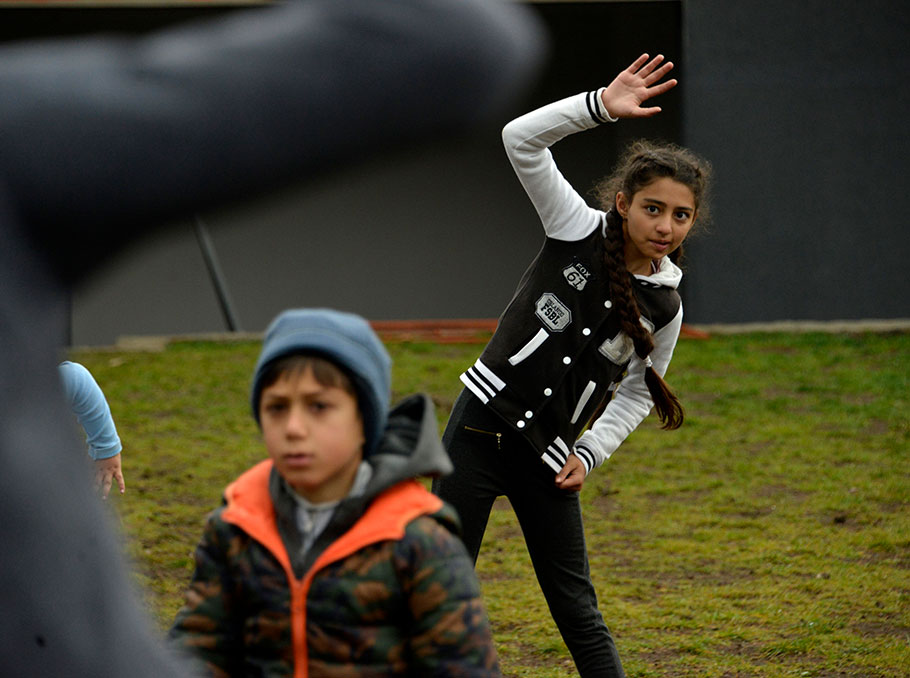
Photo: Vaghinak Ghazaryan/ Mediamax
We are not replacing school education, but are trying to fill in the gaps. Our goal is that the children are not cut off from the educational environment, the general process, and the desire to get education doesn’t fade away, because long vacations, traumas and the psychological stress do not allow them to concentrate on education. When we first started, we had students who would say: “I can only think about my dad, my brother”. Afterwards, they gradually realized that it was better to get an education, to be busy with something.”
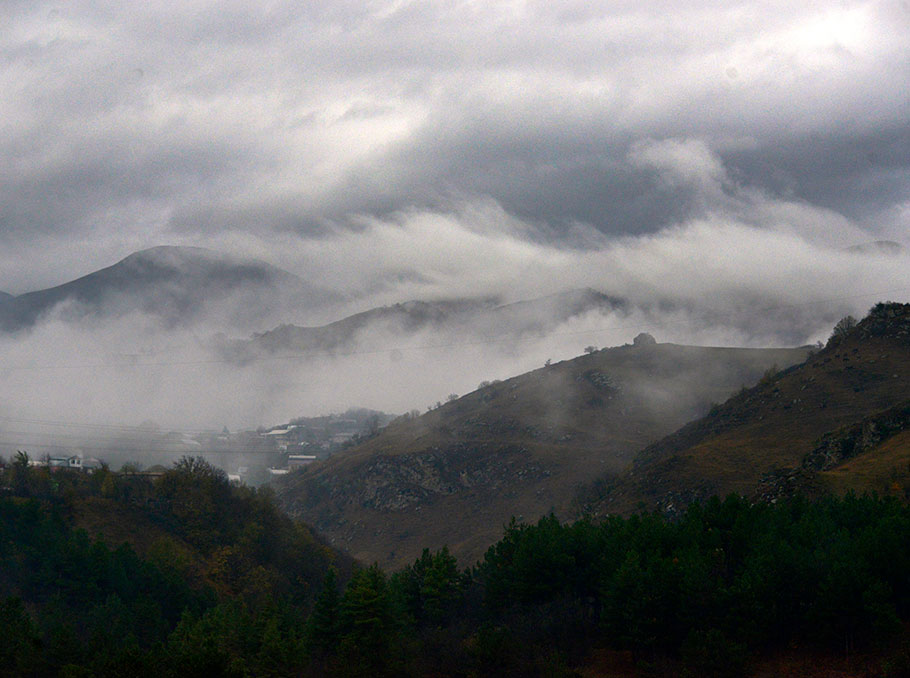
Photo: Vaghinak Ghazaryan/ Mediamax
The teachers work with about 100 children living in hotels and guesthouses of Dilijan. In addition to the subjects taught at school, they also fill in the gaps in other subjects if necessary.
Artsrun Arshakyan - PE, Chess and English teacher in Mets Shen village of Shushi region
Prior to joining Teach For Armenia, rescuer Artsrun Arshakyan worked as a mountain guide. He has visited many villages, but the most beautiful one he has ever seen was the Mets Shen village of Artsakh.
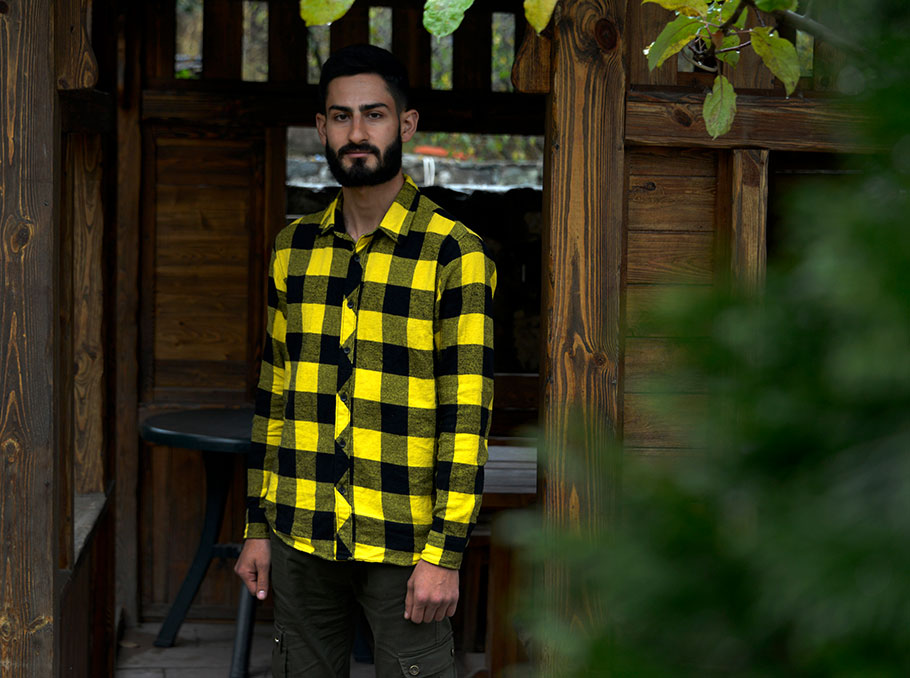 Artsrun Arshakyan
Artsrun Arshakyan Photo: Vaghinak Ghazaryan/ Mediamax
So, Artsrun moved to Artsakh to teach the children of the most beautiful village for 2 years.
“I understood that an average village in Artsakh had more problems than that in Armenia, and that I could be a little bit more helpful in Artsakh. I understood that it would be more difficult, but I wanted to spend those two years in Artsakh. Even after being there, I realized that after those two years I wanted to continue living in Stepanakert and do something there.”
On September 27, Artsrun was in Stepanakert. When the building shook, everyone thought it was an earthquake or the continuation if the previous day’s fireworks dedicated to the Capital Day.
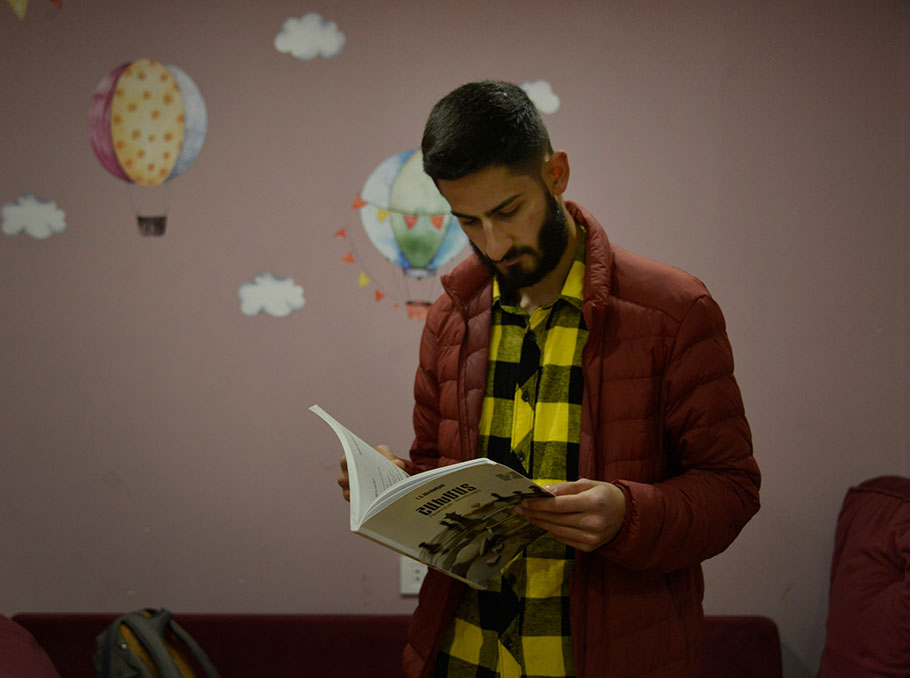 Artsrun Arshakyan
Artsrun Arshakyan Photo: Vaghinak Ghazaryan/ Mediamax
“We checked the internet but there was no news. Hearing voices behind the door, I went out into the hallway and asked one of my neighbors, who was half dressed in a military uniform, about what was happening. He said a large-scale war had begun. I went back and looked out the window. There was a chaotic movement on Azatamartikner Street, which is one of the main streets in the city, cars were speeding up and down the street, people were running towards the shelter in groups. We got dressed as well and went to the shelter.”
After that, they have been constantly on the move for about 10 days: in a nearby shelter, village, friends’ house, often under shelling. After changing 7-8 cars, they finally arrived in Yerevan. Artsrun says it was hard at first, they jumped from every sound, thinking they were being shelled. But they recovered quickly. Working with children in Dilijan also helped a lot.
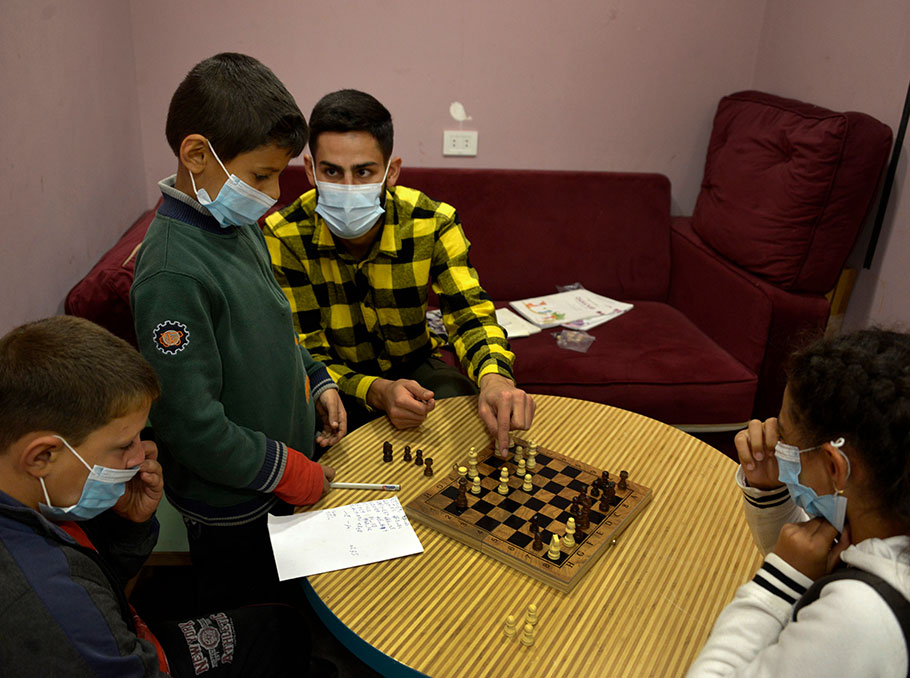
Photo: Vaghinak Ghazaryan/ Mediamax
“Chess is taught in the 2d-4th grades. I am now in the 5th grade and forgot how to play chess. I used to play with my dad, but we stopped playing when he found a job, and I played chess on computer,” says Natalya, who is from Hadrut.
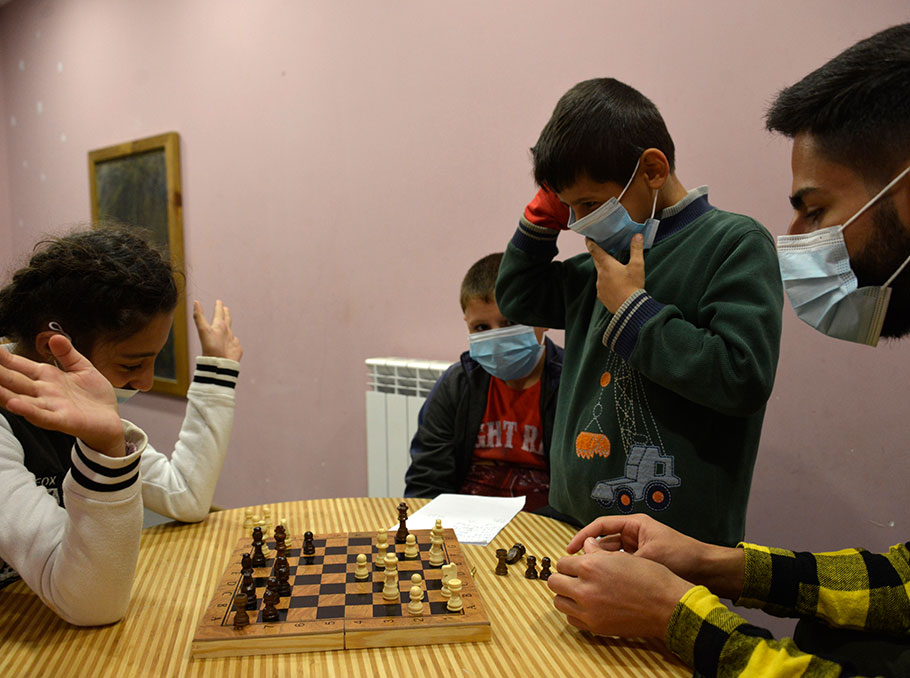
Photo: Vaghinak Ghazaryan/ Mediamax
Artsrun keeps in touch with all his students who have found refuge in the villages and towns of Armenia. They will soon be handed tablets to start distance learning.
Shushan Manukyan - Math teacher in Berdashen village of Martuni region
From the dining room windows, Stella, Vruyr, Mariam and Vanessa are watching the new residents move into their guesthouse. They are trying to figure out if there are children their age among the newcomers. Stella and Mariam are sisters, Vruyr and Vanessa are siblings.
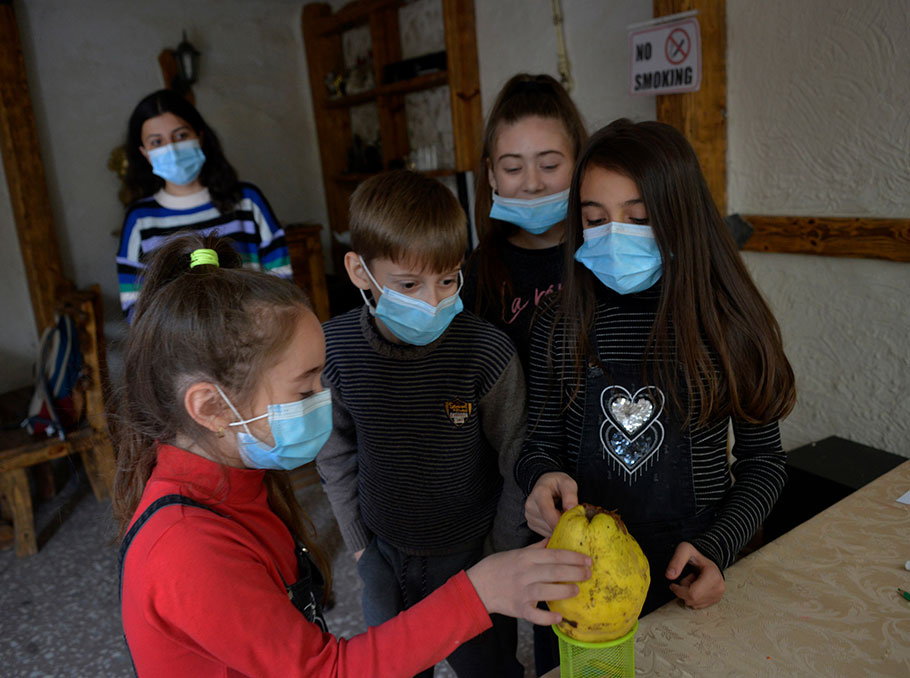
Photo: Vaghinak Ghazaryan/ Mediamax
- We met here, but a few years ago we saw each other once in Stepanakert, - says Vanessa.
Ms. Shushan is teaching this class of 4 students. She had 6 students, but two of them moved to Abovyan. There were more than 200 students in the village of Berdashen of Martuni region, where she taught mathematics.
Shushan Manukyan remembers her 11-day experience as a TFA Teacher-Leader with nostalgia.
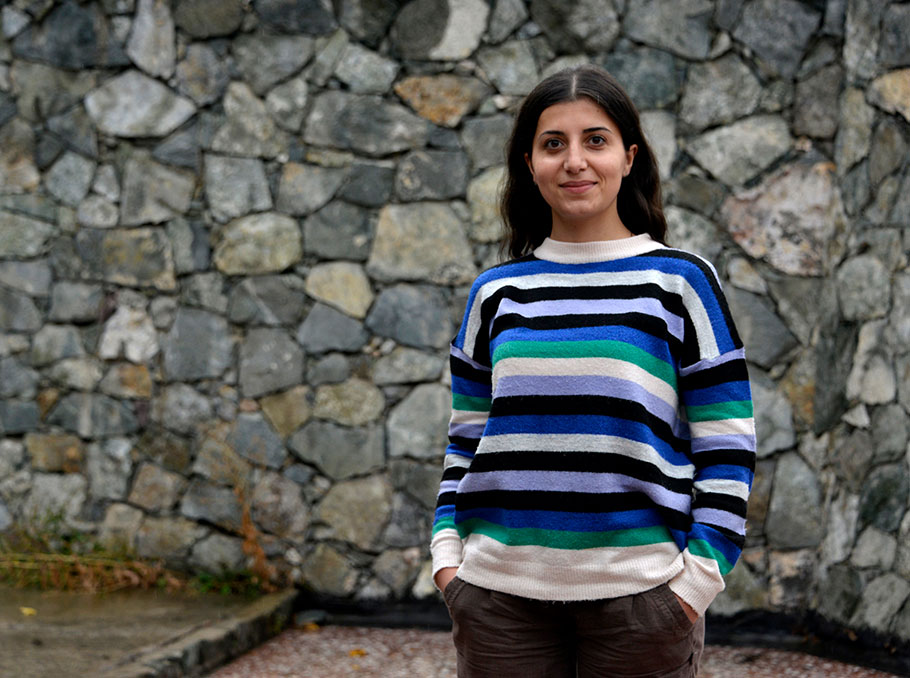 Shushan Manukyan
Shushan Manukyan Photo: Vaghinak Ghazaryan/ Mediamax
“Each letter I received from children on social media, like “are you scared? are you hurt? are you safe? is everything okay? how do you feel?”, gives me tremendous strength to keep going.”
Shushan stayed in the village for 3 days after the war broke out. She played with the students in the basement to occupy them. After returning to Armenia, she needed time to recover and regroup. She says it is good that Teach For Armenia again gave her the chance to be close to the children.
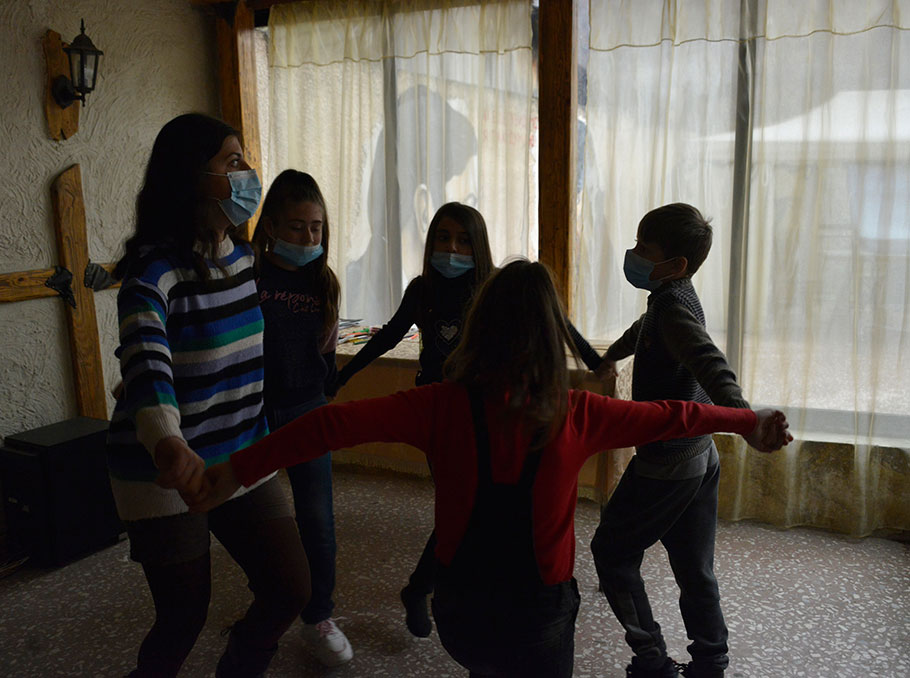
Photo: Vaghinak Ghazaryan/ Mediamax
They have classes every day as scheduled, draw, reinforce what they have learned through role-playing, but neither the children nor Ms. Shushan can forget what they went through and saw in Artsakh.
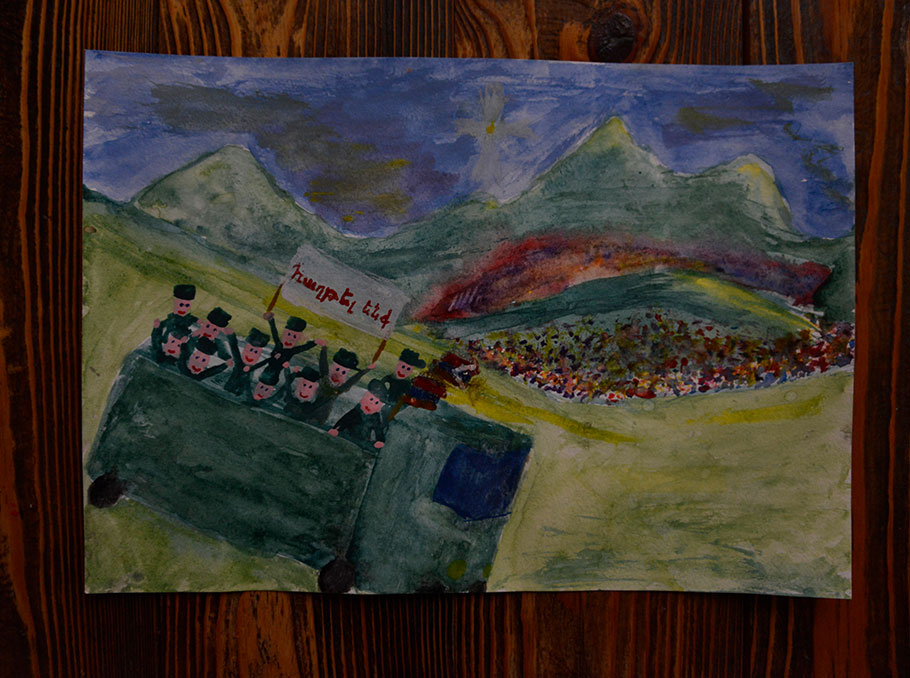
Photo: Vaghinak Ghazaryan/ Mediamax
“We woke up at 7 o’clock in the morning to loud voices and noise. Dad was telling mom to get us dressed quickly and get down to the basement. People all around were crying: they knew that they and their children would die, their lives would be ruined.
The noises were loud, drones were coming and going every second. There was a man who had a car. When he would turn on the ignition, it would sound like a drone, and each sound would scare mommies to death.
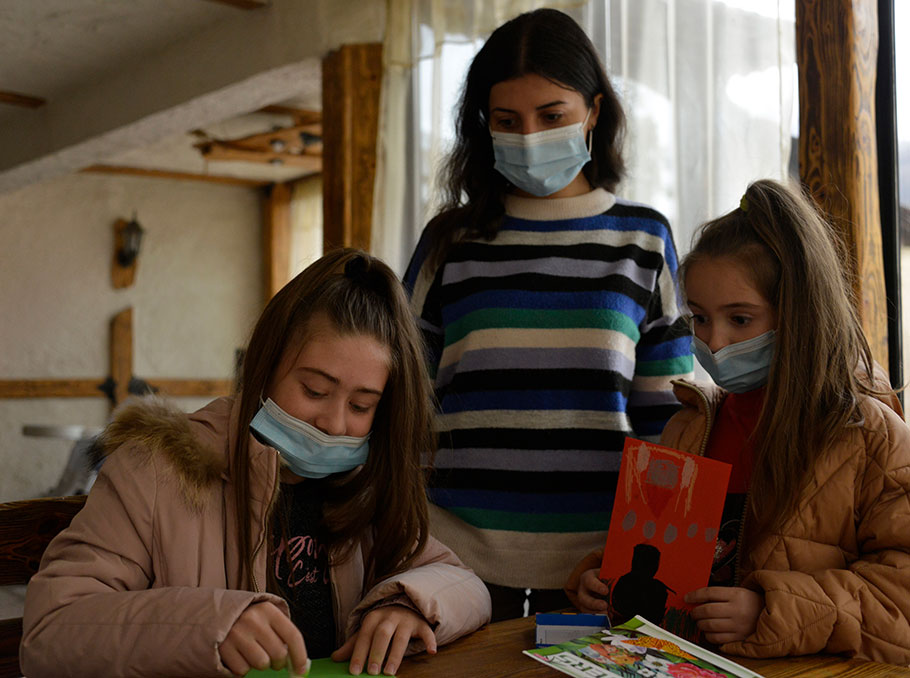
Photo: Vaghinak Ghazaryan/ Mediamax
We decided to go to Yerevan. There was a woman who was sobbing and saying – “My children are here, where should I go?”. She didn’t want to leave, but her husband got angry and forced her into a car, which took her away. We followed her to the same place, and she was still sobbing,” says 11-year-old Mariam, while other children interrupt her, remembering episodes from their last days spent in Artsakh.
Shushan stays in touch with some of her students from Artsakh. It pains her that she can’t unite everyone. Two of her students, Taron and Manush, are in Dilijan. She does not teach them here, but often visits with them.
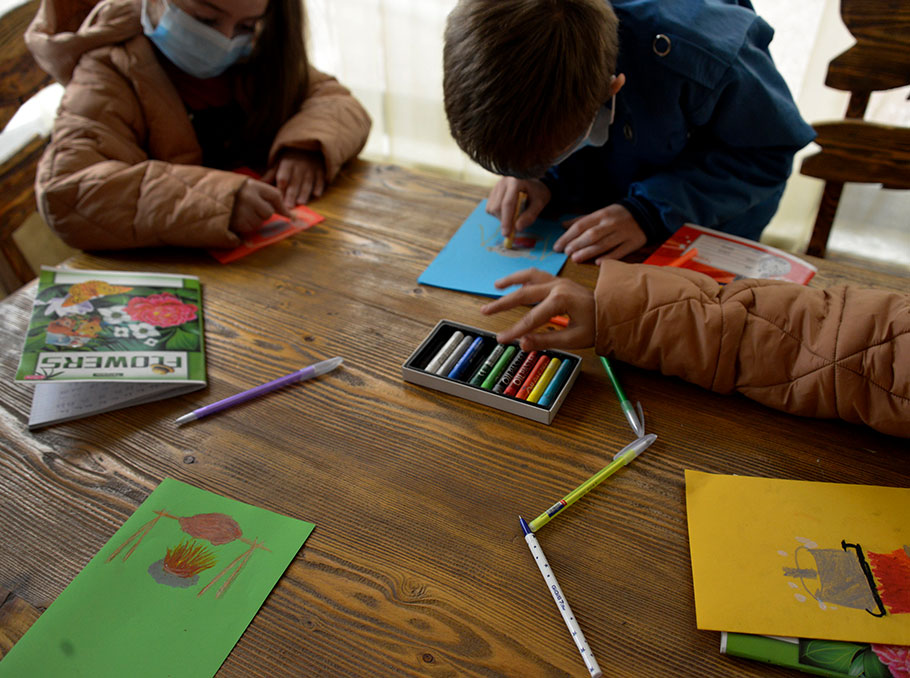
Photo: Vaghinak Ghazaryan/ Mediamax
“After leaving Artsakh, I was constantly looking for my students. I considered the day successful if I found one of them, for example, when Tigran told me he had talked to Vahe. I never imagined that I would be connected with my students like this. I miss them so very much.”
Gagik Avagyan - PE and Chess teacher in Karin Tak village of Shushi region
Gagik Avagyan spends all the day between various Dilijan hotels. He jokes that he is a “traveling” teacher. He teaches PE and chess in Dilijan, just like he did in the village of Karin Tak of Shushi region.
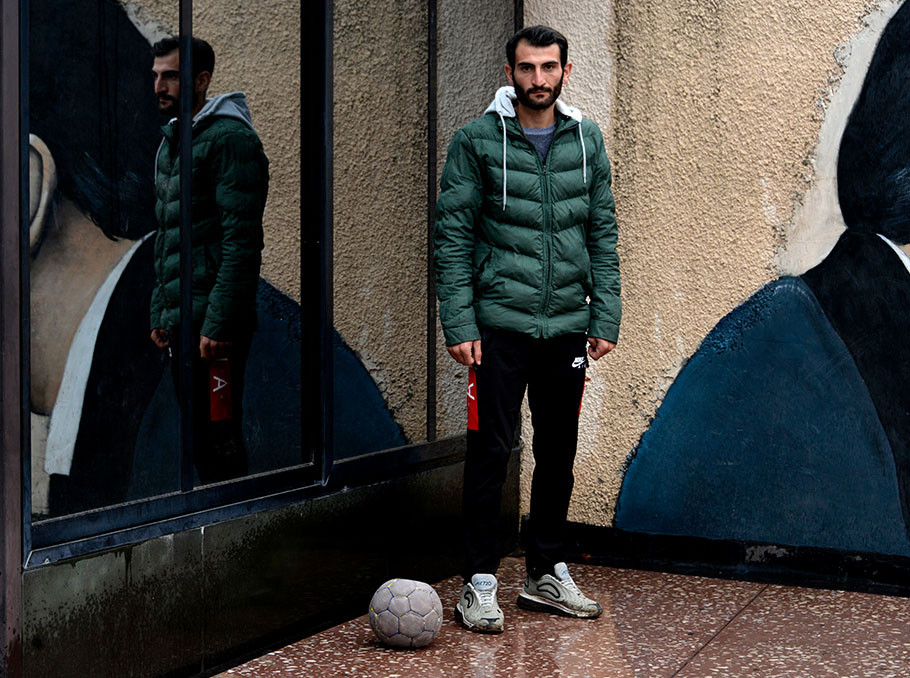 Gagik Avagyan
Gagik Avagyan Photo: Vaghinak Ghazaryan/ Mediamax
Picking up the students from the road, he goes up to an open field where they will have their first physical education class in the rain.
Gagik is a coach and a teacher. He moved to Artsakh this September so that all the children, regardless of where they lived, had an opportunity to receive good education. So many projects remained unfinished, he says.
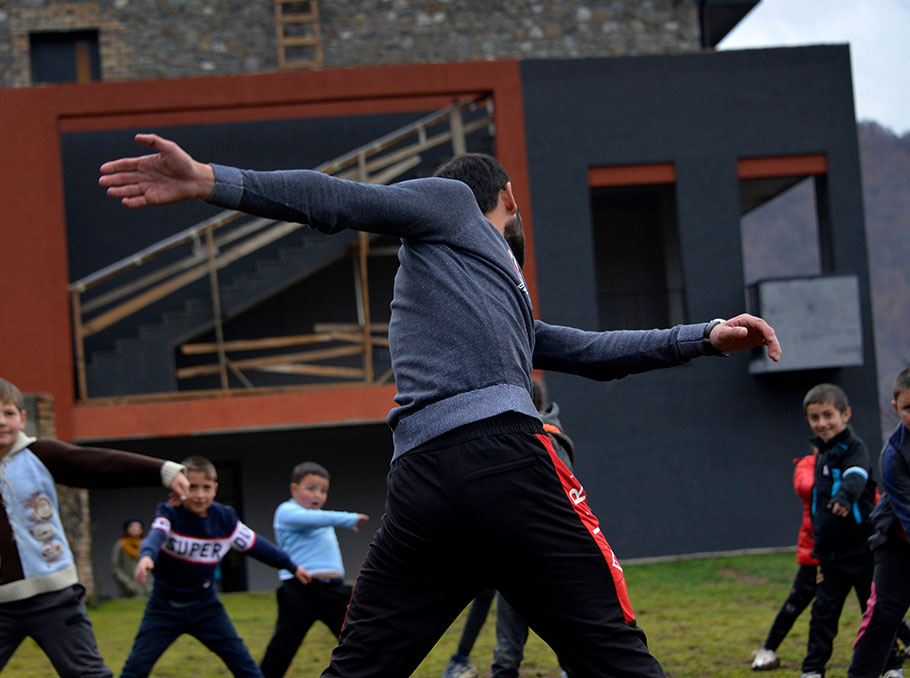
Photo: Vaghinak Ghazaryan/ Mediamax
“I had classes every day at school and dreamed of having some time to myself on Sunday. I was asleep when my wooden house started vibrating and shaking violently. I thought it was an earthquake, but then my neighbor started shouting: “Get out, it’s a war, pack your clothes, go”. I stayed in Artsakh for 9 days to help people in Karin Tak and Stepanakert. We thought it would be over soon, but it was not,” says Gagik Avagyan.
He served in Artsakh, but it was the first time that he visited Karin Tak. Gagik says he fell in love with the village. He used to drink coffee on the balcony every morning, enjoying the view, and couldn’t believe he was seeing all that beauty.
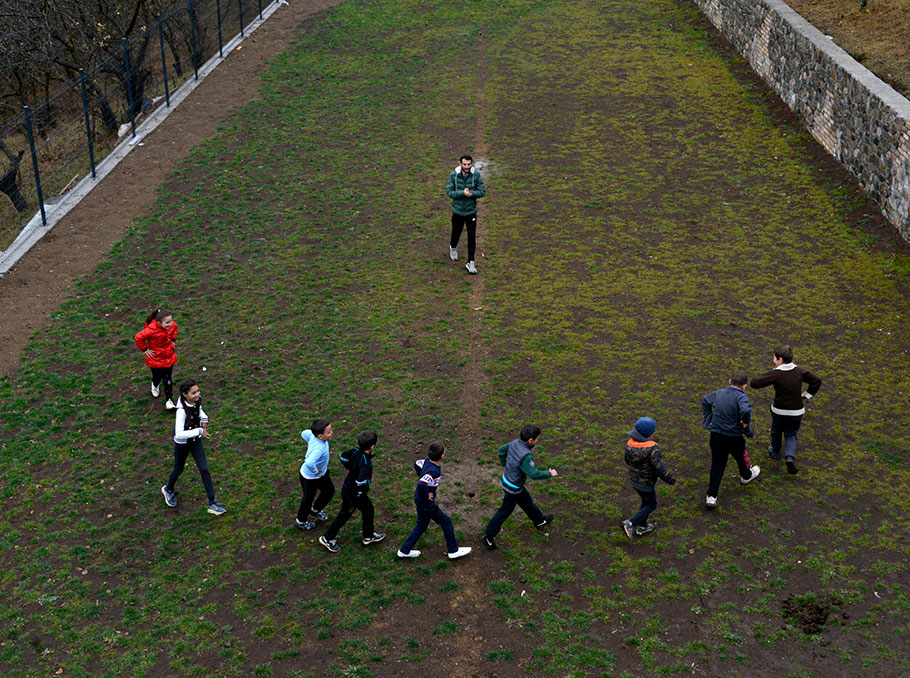
Photo: Vaghinak Ghazaryan/ Mediamax
Gagik keeps in touch with his students and the villagers, but deliberately does not follow the news.
“There is a video of the enemy shelling the Karin Tak cliff, right next to my house. I keep thinking if the house will be OK so that I had a place to stay.”
Trilateral ceasefire agreement was signed on November 9. Gagik and Artsrun do not know yet whether they can return to their villages or not.
Lusine Gharibyan
Photos: Vaghinak Ghazaryan (specially for Mediamax)









